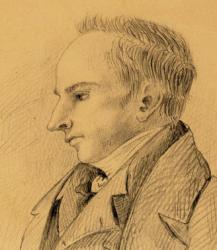1838 - 1898 Person Name: Claudia F. Hernaman Meter: 7.6.7.6 Author of "Hosanna, Now Through Advent" in The Hymnal for Boys and Girls Hernaman, Claudia Frances, née Ibotson, daughter of W. H. Ibotson, sometime Vicar of Edwinstowe, Notts, was born at Addlestone, Surrey, Oct. 19, 1838, and married Sept. 1858, to the Rev. J. W. D. Hernaman, one of H. M. Inspectors of Schools. Mrs. Hernaman has composed more than 150 hymns, a great proportion of which are for children, and also some translations from the Latin. Her publications include:—
(1) The Child's Book of Praise; A Manual of Devotion in Simple Verse by C. F. H. Edited by the Rev. James Skinner, M.A., &c, 1873 ; (2) The Story of the Resurrection 1879; (3) Christmas Story, 1881; (4) Christmas Carols for Children, 1st series, 1884; 2nd series, 1885; (5) The Way of the Cross, a Metrical Litany, 1885; (6) Hymns for the Seven Words from the Cross, 1885; (7) The Crown of Life: A volume of Verses for the Seasons of the Church, 1886.
In addition to these original publications Mrs. Hernaman contributed hymns to the Church Times, to various magazines, and to
(l) Hymns for the Children of the Church (22 hymns). 1878; (2) Hymns for the Little Ones in Sunday Schools (10 hymns), 1884; (3) The Rev. M. Woodward's (Folkestone) Children's Service Book, 1883; (4) Mrs. Brock's Children's Hymn Book, 1881; and (5) The Altar Hymnal, 1884. Mrs. Hernaman edited The Altar Hymnal, and contributed thereto a few translations from the Latin in addition to original hymns.
Mrs. Hernaman's hymns in common use appeared as follows:—
i. In her Child's Book of Praise, 1873.
1. Behold, behold He cometh. Advent.
2. Holy Jesus, we adore Thee. Circumcision.
3. How can we serve Thee, Lord. For Choristers.
4. Jesus, in loving worship. Holy Communion.
5. Jesus, Royal Jesus. Palm Sunday.
6. Lord, I have sinned, but pardon me. Penitence.
7. Lord, Who throughout these forty days. Lent.
8. Reverently we worship Thee. Holy Trinity.
ii. In her Appendix to The Child’s Book of Praise, 1874, and Hymns for Little Ones, 1884.
9. Hosannah, they were crying. Advent.
iii. In her Christmas Carol, 1875.
10. Angels singing, Church bells ringing. Christmas Carol.
iv. In Hymns for the Children of the Church, 1878.
11. As Saint Joseph lay asleep. Flight into Egypt.
12. Come, children, lift your voices. Harvest.
13. God bless the Church of England. Prayer for the Church.
14. Happy, happy Sunday. Sunday.
15. He led them unto Bethany. Ascension.
16. Jesu, we adore Thee. Holy Communion.
v. In her Story of the Resurrection, 1879.
17. Early with the blush of dawn. Easter.
18. Now the six days' work is done. Sunday.
vi. In The Altar Hymnal, 1884.
19. Arm, arm, for the conflict, soldiers (1880). Processional.
20. Calling, calling, ever calling. Home Mission. Written in 1878, and printed in New and Old.
21. Gracious Father, we beseech Thee. Holy Communion.
22. Hail to Thee, 0 Jesu. Holy Communion.
23. Magnify the Lord today. Christmas.
24. 0 Lamb of God, Who dost abide. Holy Communion.
25. This healthful Mystery. Holy Communion.
vii. In Mrs. Brock's Children's Hymn Book, 1881.
26. It is a day of gladness. Girls' Friendly Societies.
Mrs. Hernaman's translations in The Altar Hymnal are annotated under their Latin first lines. There is also her Good Shepherdhymn, in three parts. (1) “Faithful Shepherd of Thine own;" (2) “Faithful Shepherd, hear our cry;" (3) "Shepherd, who Thy life didst give," which appeared in Hymns for the Children of the Church, 1878, and in The Altar Hymnal 1884. She died Oct. 10, 1898.
--John Julian, Dictionary of Hymnology (1907)
Claudia Frances Hernaman
